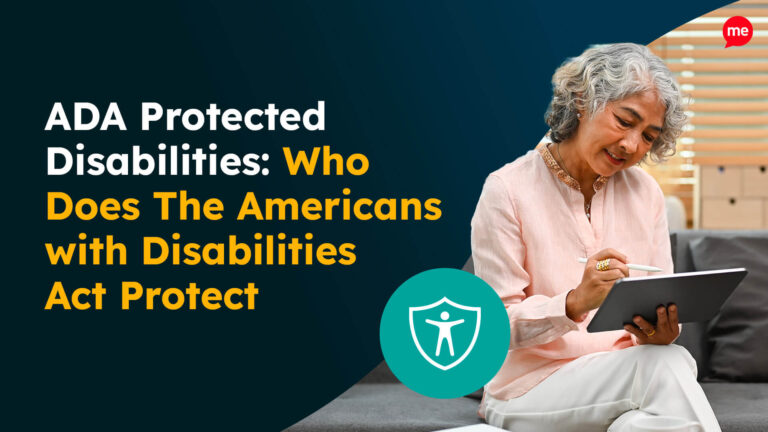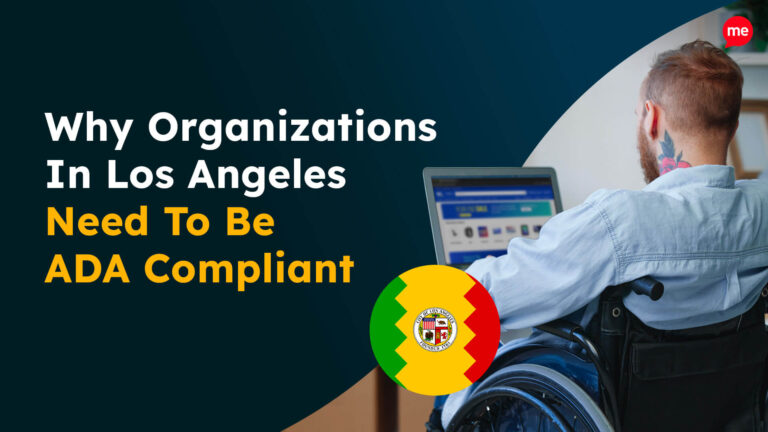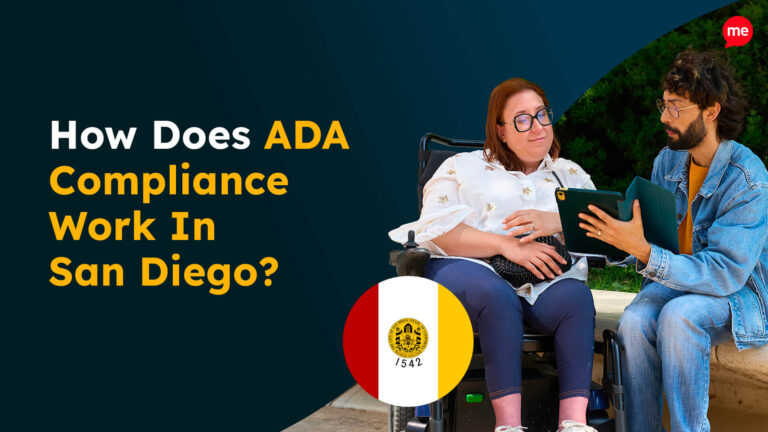The world is increasingly reliant on technology for day-to-day tasks. No matter where you go in the world, phones guide us through cities, keep us entertained, and help us communicate across borders. This digital dependence emphasizes just how important it is for us to keep our online content accessible, especially in Florida, where there are 5 million individuals living with some form of disability according to the CDC.
This article acts as a guide to accessibility laws in the state of Florida. It delves into key laws, who they affect, the risks of non-compliance, notable lawsuits, and the importance of adhering to the Web Content Accessibility Guidelines (WCAG).
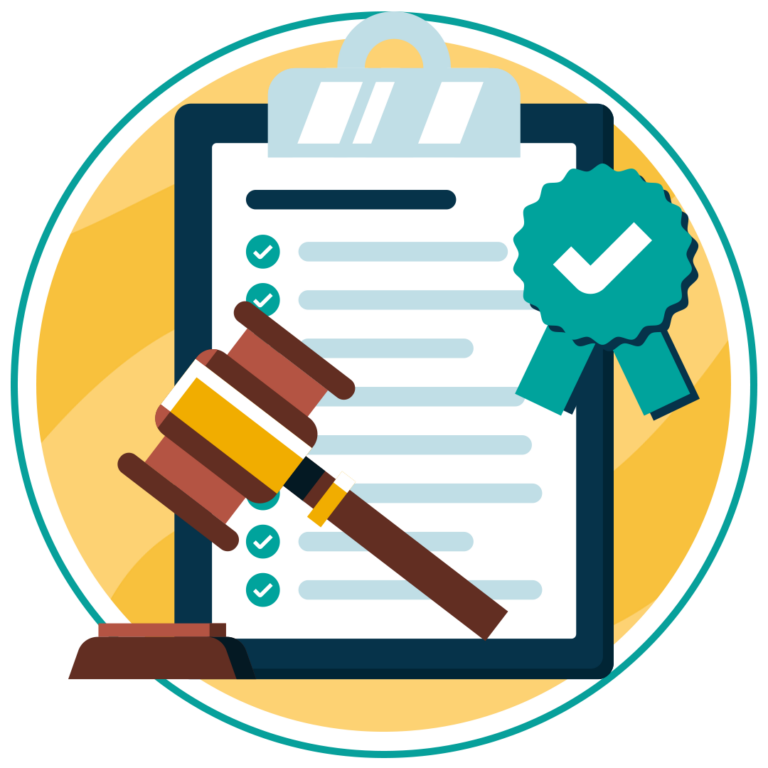
Web Accessibility Laws in Florida
Navigating the legal landscape of web accessibility in Florida involves understanding several crucial pieces of legislation, both statewide and federal. These laws ensure that digital content is accessible to everyone, but particularly individuals with disabilities.
Florida Accessible Electronic and Information Technology Act
The Florida Accessible Electronic and Information Technology Act is a pivotal piece of state legislation. Enacted to ensure that state agencies and educational institutions provide accessible electronic and information technology, this act mandates that digital tools and platforms be usable by all individuals, including those with disabilities.
For example, if a state university in Florida rolls out a new online portal for students, it must ensure that the portal is compatible with screen readers so that visually impaired students can still operate the portal effectively. This involves using proper HTML markup and providing relevant alt text for all images. It may also involve making sure all functionalities are keyboard accessible for those who cannot use a mouse due to poor vision.
Americans with Disabilities Act (ADA)
The Americans with Disabilities Act (ADA) is a federal law with far-reaching implications; one of those being digital accessibility. Title II of the ADA applies to state and local government entities, mandating that their websites and digital services be accessible to people with disabilities. Title III extends these requirements to places of public accommodation, which includes businesses and non-profit organizations that serve the public.
You can learn more about ADA compliance in Florida here.
Section 508 of the Rehabilitation Act
Section 508 of the Rehabilitation Act requires federal agencies to make their electronic and information technology accessible to people with disabilities. While this law primarily targets federal agencies, it also affects state and local entities that receive federal funding.
For instance, a county health department in Florida that receives federal funding must ensure its online health resources are accessible. This could involve creating PDFs that are readable by screen readers or ensuring that their website follows WCAG best practices.
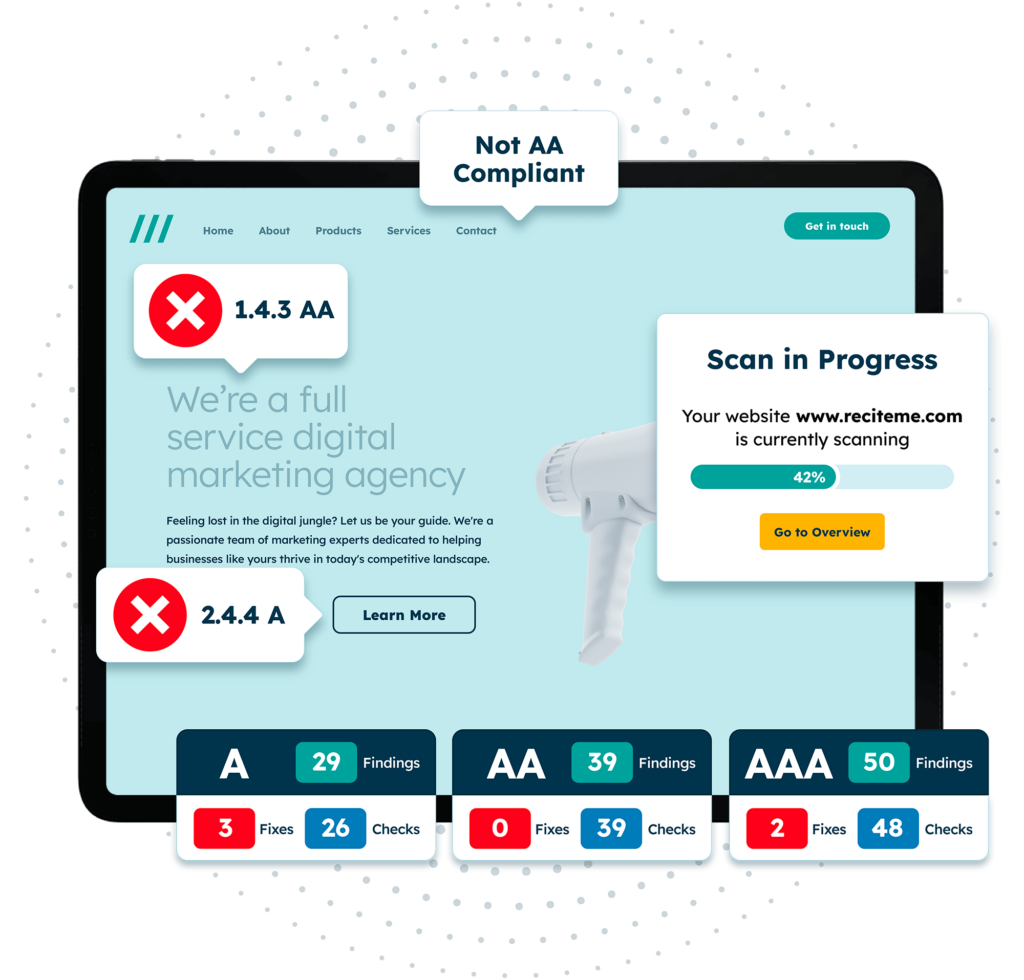
Free Accessibility Compliance Check of your Website
Finding accessibility issues is now easier than ever. Recite Me offers a free automated scan of your website’s homepage to highlight non-compliance. You’ll get recommendations on how to fix them, helping to improve your accessibility score.
Who is affected by Florida Digital Accessibility Laws?
Web accessibility laws in Florida impact a wide range of entities, from government agencies to private businesses. Any state and local government agency must ensure their website and digital services are accessible under both the Florida Accessible Electronic and Information Technology Act and Title II of the ADA. This means that these agencies must make their online content usable for individuals with disabilities, ensuring equal access to information and services by removing any barriers to access. At the same time, businesses, non-profit organizations, and other private entities must ensure their websites are accessible under Title III of the ADA. This includes eCommerce websites, service providers, and other customer-facing entities.
Educational institutions, such as public schools, colleges, and universities, are also affected by Florida digital accessibility laws. Essentially, this ensures that all students, regardless of their disabilities, can access educational resources and participate fully in academic programs. You can learn more about accessibility in education and higher education here.
The same goes to any federal contractors or recipients of federal funding, all of whom must comply with Section 508 requirements. For instance, a Florida-based non-profit organization that provides online resources for the visually impaired must ensure their website is accessible to meet both ADA and Section 508 standards.

What are the risks of Non-compliance with Florida Accessibility Legislation
Ignoring web accessibility laws can have serious consequences, not just legal. Non-compliance can lead to increased regulatory scrutiny in the future, cause damage to a business’s reputation, and indirectly impact its bottom line.
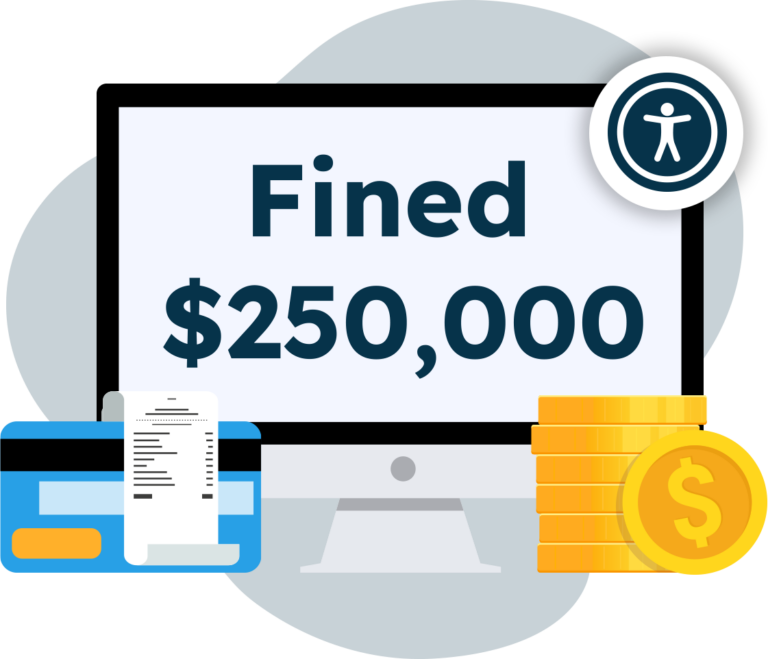
Legal Penalties
Non-compliance can result in costly ADA website lawsuits. Plaintiffs often seek injunctive relief; a remedy which restrains a party from doing certain acts or requires a party to act in a certain way. To avoid such remedies, as well as steep attorney fees and damage costs, businesses must make their websites accessible. Beyond the state-wide litigation, federal and state penalties can also apply, including fines and sanctions.
Financial Losses
A lack of accessibility can drive potential customers away. The Click-Away Pound Survey reported that 71% of users with disabilities will leave a website if it is difficult to use. These frustrated visitors go from potential customer to lost customer very quickly, leading to significant revenue losses over time, especially for e-commerce businesses.
Reputational Damage
Failing to follow accessibility best practices can harm a company’s reputation. Negative publicity from accessibility lawsuits, for example, can deter customers and partners, leading to long-term, and often irreversible, damage. Also, if users of your website experience frustrations with accessing, reading, or digesting digital content, these frustrations may quickly turn to negative perceptions of your business, spreading rapidly amongst social circles and online review platforms.
Regulatory Scrutiny
Businesses that fail to comply with accessibility laws may face increased scrutiny from regulatory bodies in the future, meaning more frequent inspections and audits. For instance, a healthcare provider in Miami that fails to ensure its patient portal is accessible could face regulatory scrutiny. This would likely involve increased inspections from the Department of Health and Human Services (HHS) and potential penalties from the Office for Civil Rights (OCR) for failing to comply with accessibility standards under the ADA and Section 508. This heightened scrutiny could lead to mandatory compliance reviews and additional audits, adding to the organization’s operational burdens and costs.
Examples of Accessibility Lawsuits in Florida
As previously mentioned, both state and government organizations are vulnerable to accessibility lawsuits. In other words, no one is protected from the consequences that follow neglecting accessibility regulations.
Any company operating their business online can end up being taken to court. And because the customers of an online business come from every corner of the country, lawsuits are not only restricted to in-state businesses. Even out-of-state businesses could find themselves answering to a Florida court should someone file a claim. This section outlines a few examples of accessibility lawsuits in Florida.
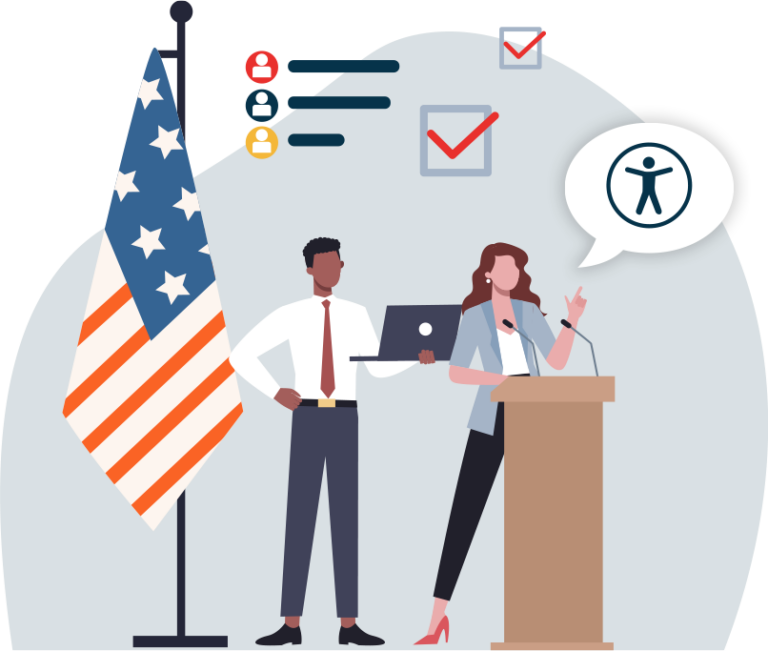
Juan Carlos Gil v. Winn-Dixie Stores, Inc.
In a landmark case, Juan Carlos Gil, a visually impaired user, sued Winn-Dixie Stores, Inc. in 2017. Gil alleged that Winn-Dixie’s website was not accessible to individuals using screen readers, preventing him from accessing online coupons and pharmacy services.
The court ruled in favor of Gil, marking one of the first times a federal court found that a website violated the ADA. Winn-Dixie was ordered to make its website accessible, setting a precedent for other businesses to follow.
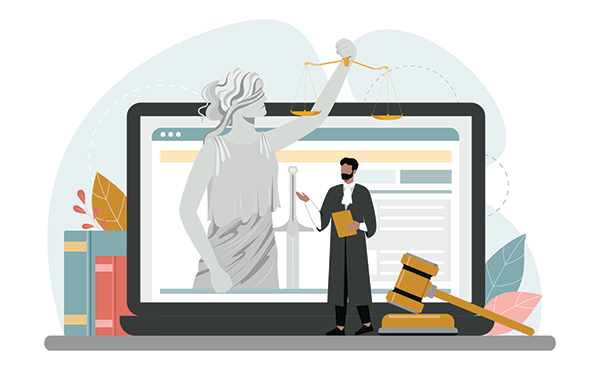
Andres Gomez v. General Nutrition Corporation (GNC)
In another significant case, Andres Gomez, a visually impaired man, sued GNC in 2018. Gomez claimed that GNC’s website was not accessible, as he was unable to browse and make purchases independently, therefore violating the ADA.
Eventually, the case was settled, with GNC agreeing to make its website accessible and cover Gomez’s attorney fees. This settlement underscores the importance of businesses taking proactive steps to ensure web accessibility.
Judith Morales v. Delray Beach Open
In 2020, Judith Morales, who is legally blind, sued the organizers of the Delray Beach Open, a tennis tournament, alleging that their website was inaccessible. Morales argued that the lack of accessibility features prevented her from purchasing tickets and accessing crucial event information.
The case was settled out of court, with the organizers agreeing to update their website to comply with WCAG standards. This case highlights the level of scrutiny event organizers, and many other businesses, face when it comes to the accessibility of their websites.
Stay ahead of the game when it comes to Digital Accessibility laws and compliance in the United States. Learn about all the different federal and state-level regulations, see real examples of web accessibility lawsuits in different regions and discover a 7-step action plan for building accessible websites.
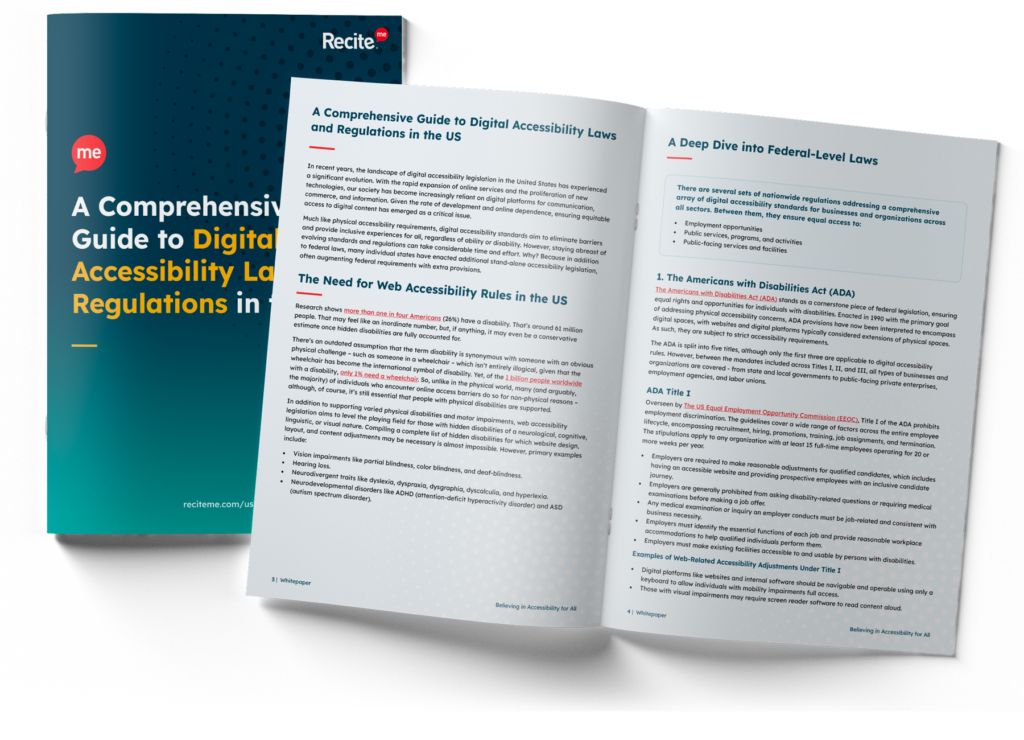
Importance of being WCAG Compliant
All state and federal legislation regarding website accessibility are based around the WCAG. They are a comprehensive set of standards that were established by the World Wide Web Consortium (W3C) to provide rules around web accessibility for all organizations.
There are several different levels of WCAG compliance that must be considered. These levels are as follows:
- Level A – Criteria you must cover to provide a basic level of accessibility on your website.
- Level AA – Criteria you should cover to meet an industry-accepted standard of accessibility.
- Level AAA – Criteria you could cover to offer enhanced accessibility.
Most requirements outlined in the ADA and Section 508 are based on WCAG Level AA compliance. However, it is always recommended to aim for Level AAA if your organization has the desire and resources to do so. If you’re struggling to grasp the differences between WCAG and Section 508 or the ADA – be sure to check our our recent blogs on WCAG Vs. ADA and WCAG Vs. Section 508.
Below are some of the most important business cases for accessibility and becoming WCAG compliant:
- Legal Protection: Following WCAG standards helps protect businesses from legal action. Many web accessibility lawsuits cite WCAG compliance as a benchmark for determining whether a website is accessible under the ADA and other laws.
- Inclusive User Experience: WCAG compliance ensures that websites are usable by everyone, including people with disabilities. This not only expands a business’s potential audience but also enhances every website visitor’s user experience.
- Competitive Advantage: Businesses that prioritize accessibility can differentiate themselves from competitors. By offering an inclusive online experience, they can attract and retain a broader customer base too.
- Ethical Responsibility: Ensuring your website is accessible for everyone is the right thing to do. It aligns with broader societal values of inclusion and equality, reflecting positively on a business’s brand and values.

